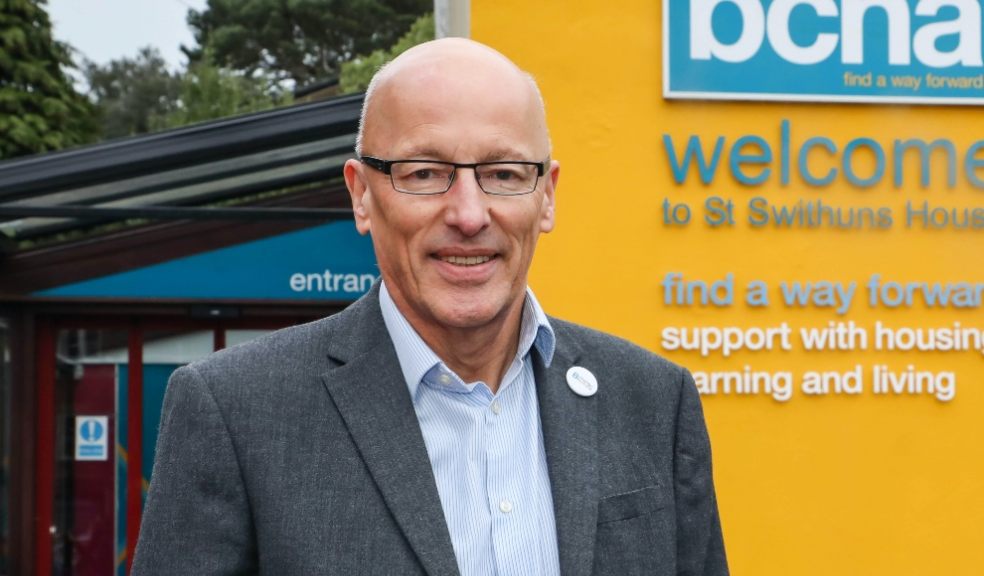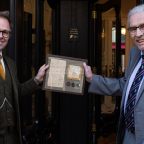
BCHA helps rough sleepers during national emergency
A housing association charity has increased practical support for rough sleepers and the homeless in and around Exeter because of the national emergency.
In close collaboration with multi-agency partners, BCHA secured them local accommodation and essential support services during lockdown.
Westminster informed local authorities that everyone sleeping rough must be supported into appropriate accommodation, with £3.2m earmarked nationally to help secure accommodation for people sleeping rough to self-isolate.
Following social distancing measures by the Government to reduce the spread of coronavirus, BCHA has had to adapt the way services are delivered although still needing to be in the frontline on site to support customers in shared accommodation homes.
Helping up to 10,000 vulnerable people each year with housing, specialist accommodation, employability skills and health and wellbeing advice, the region-wide charity acted quickly as the Covid-19 crisis unfolded.
BCHA’s Michael Campbell, a Senior Practitioner in Exeter, spoke of how challenges were overcome at the city’s 42-bed Gabriel House, which is fully occupied and accommodates people with support needs.
He said: “To free up beds we were able to move on occupiers, who no longer required as much support, to our 14-bed ‘move on’ property in Exeter.
“We also reduced the number of twin beds and dormitory style accommodation to allow for social distancing or self-isolation – no-one is sharing a room.
“Extra support has been provided with entertainment, including TVs secured through funding, with meals and prescriptions delivered to Gabriel House.
“There are a number of medically vulnerable occupiers shielding as well.
“The reception, with marked 2m lines for social distancing, has tables for people to wait at and we have encouraged people using shared kitchens, where it is not possible to maintain a safe distance, to stick in clusters, self-isolating from others.
“A lot of hard work is going on here by support workers at Gabriel House to ensure occupiers are as resilient as possible during national lockdown.”
In a direct response to coronavirus, BCHA has opened a seven-bed provision for rough sleepers as part of Exeter SleepSafe, along with pathway support to help individuals turn their lives around. Occupiers can stay for up to three months.
Headquartered in Bournemouth and with 320 staff, BCHA has 1,766 accommodation units across the South and South West.
Of these, 740 are supported homes for people who find themselves homeless after facing relationship breakdowns, addictions, unemployment, domestic abuse and deteriorating mental and physical health.
Martin Hancock, Chief Executive of BCHA, said: “Michael and his colleagues at Gabriel House in Exeter are doing an incredible job, out of the public eye, in providing safe places for people to stay and helping protect the NHS through keeping more people housed and supporting an end to rough sleeping.
“BCHA, in a combined effort with partners on the ground, is having to adapt how services are delivered, creating safer spaces and engaging with our customers in a variety of different ways to give additional support in this lockdown period.
“It’s about protecting customers and our key frontline staff, easing the pressure on the NHS and other essential services during the pandemic.
“Although we still have a way to go before a full return to business as usual, the big challenge now both morally and practically is how do we ensure that people who have had to be sleeping rough without a roof over their head can remain safely off the streets.
“We and local councils need to have the longer term funding to find more homes and give the right levels of support and training.
“Our message to Westminster is that there needs to be a long-term strategy – as things stand there are not enough ‘move on’ housing options.
“Beyond the national emergency the Government must ensure no one returns to sleeping rough – this is a chance to end rough sleeping.”
According to Government figures, there are 4,266 people sleeping rough on any given night in England, many sofa surfing and in unsuitable housing situations as well as tens of thousands more living in homelessness accommodation services that are only temporary.
Martin added: “This is now the time to end rough sleeping and end homelessness as it has shown what can be done when we all pull together to make it happen even, if it was prompted by an emergency health pandemic. Let’s not miss this moment.”




















